Unveiling the Tangy Treasure: Exploring the Health Benefits of Umeboshi, Japanese Pickled Plums
Unveiling the Tangy Treasure: Exploring the Health Benefits of Umeboshi, Japanese Pickled Plums
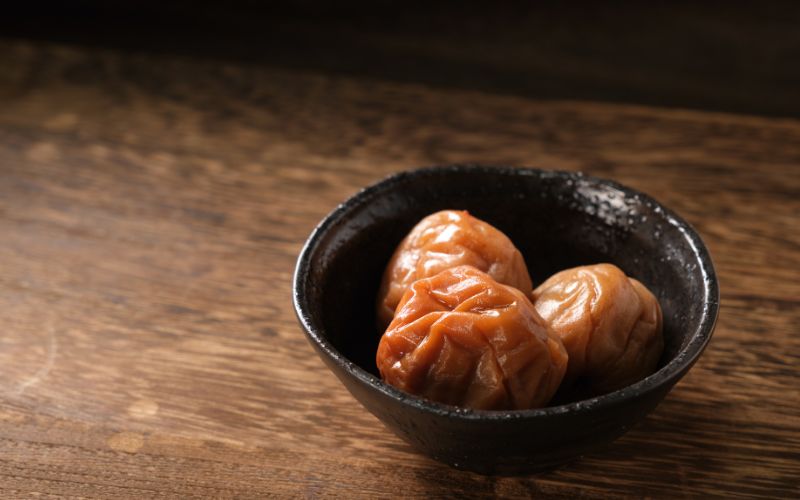
In the colorful tapestry of Japanese cuisine, umeboshi stands out as a distinctive flavor. These vibrant, tangy pickled plums have long been cherished not only for their unique taste but also for their array of health benefits. Let's delve into the nutritional richness and wellness advantages that make umeboshi a prized delicacy in Japan and beyond.
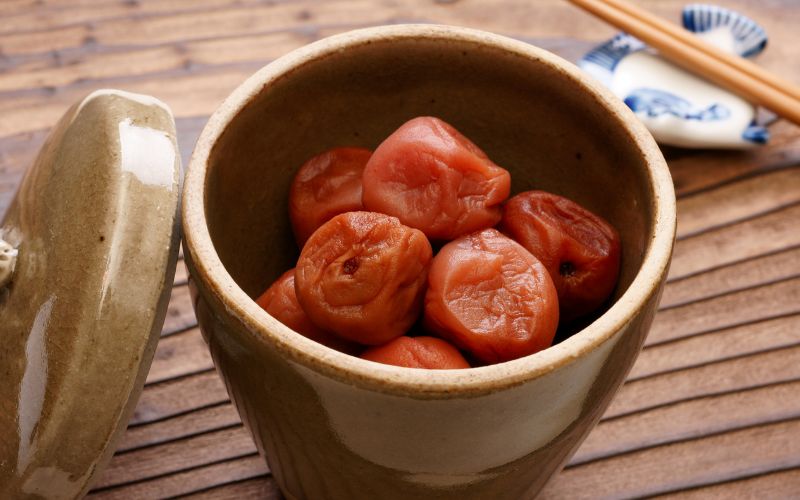
Nutritional Profile of UMEBOSHI
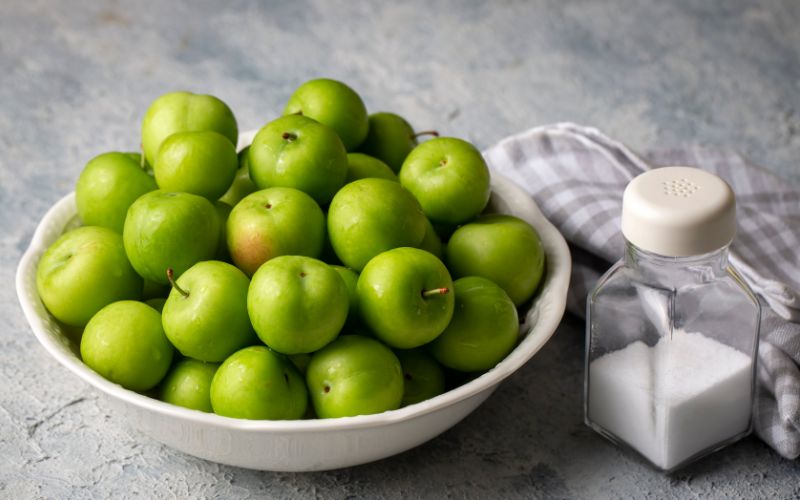
Umeboshi, derived from ume fruits, known as Japanese plums or apricots, undergo a fermentation process with salt, imparting them with their signature tangy flavor. This traditional preservation method not only enhances taste but also preserves the nutritional value of the fruit. Umeboshi is low in calories but rich in essential nutrients, including:
Vitamins and Minerals: Umeboshi contains notable amounts of vitamins such as vitamin C, which supports immune function and skin health, and minerals like potassium, which is crucial for heart health and muscle function.
Polyphenols: These plant compounds act as antioxidants, helping to combat oxidative stress and inflammation in the body. Umeboshi's polyphenol content contributes to its potential health-promoting properties.
Probiotics: The fermentation process involved in making umeboshi encourages the growth of beneficial bacteria, similar to other fermented foods like kimchi and miso. These probiotics promote gut health by supporting a balanced microbiome, which is linked to various aspects of overall well-being.
Health Benefits of UMEBOSHI
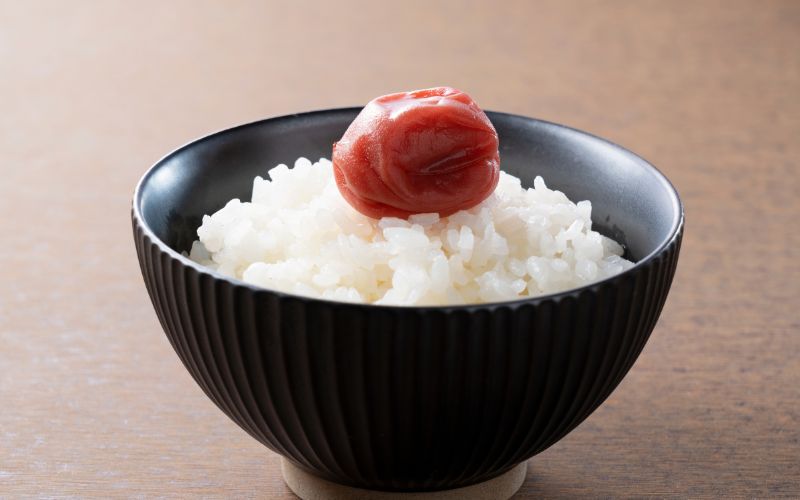
Digestive Health: Umeboshi's probiotic content makes it beneficial for digestive health. Consuming probiotic-rich foods like umeboshi can help maintain a healthy balance of gut bacteria, which may alleviate digestive issues such as bloating, gas, and constipation.
Immune Support: The vitamin C content in umeboshi contributes to its immune-boosting properties. Regular consumption of foods rich in vitamin C, such as umeboshi, may help reduce the risk of infections and support overall immune function.
Alkalizing Effect: Despite their acidic taste, umeboshi have an alkalizing effect on the body once metabolized. This alkalizing effect is believed by some to help balance the body's pH levels, potentially reducing acidity and promoting overall health.
Hangover Relief: In Japanese culture, umeboshi has been traditionally used as a remedy for hangovers. Its sour flavor is thought to stimulate saliva production and aid in rehydration, while its alkalizing effect may help counteract the acidic effects of alcohol.
Incorporating Umeboshi into Your Diet
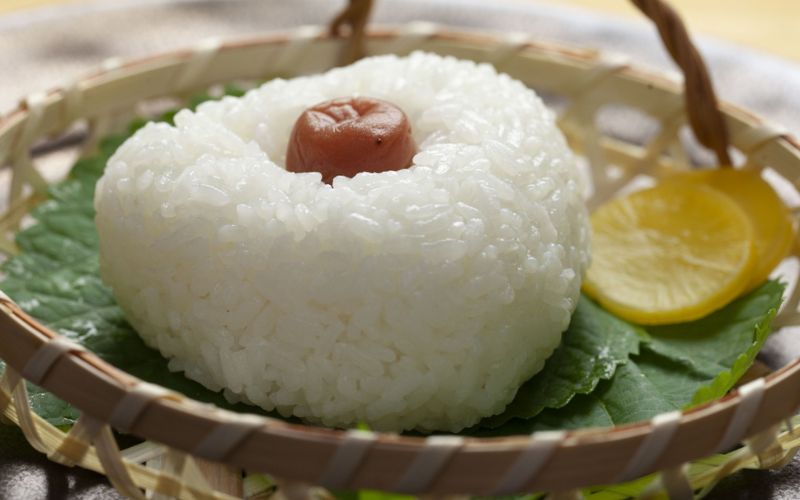
Umeboshi can be enjoyed in various ways, adding a burst of flavor and nutrition to dishes. Here are some suggestions:
Condiment: Use umeboshi paste or finely chopped umeboshi as a condiment for rice, noodles, salads, or cooked vegetables.
Flavoring: Add a whole umeboshi plum to rice balls (onigiri) or incorporate it into sushi rolls for a tangy kick.
Tea: Steep umeboshi in hot water to make a soothing tea that can be enjoyed on its own or with a touch of honey.
Cooking Ingredient: Use umeboshi vinegar or vinegar brine in salad dressings, marinades, or sauces to impart a unique flavor to your dishes.
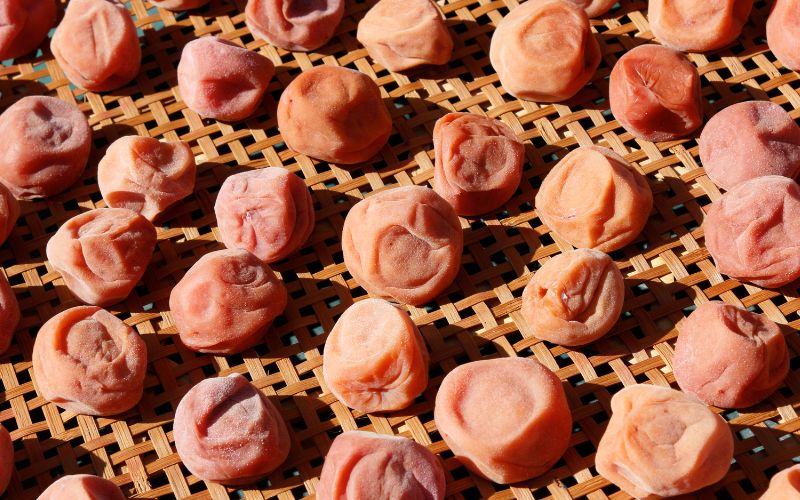
Umeboshi, with its distinctive taste and array of health benefits, offers a flavorful way to enhance both culinary experiences and overall well-being.
Whether enjoyed as a condiment, a snack, or a remedy for various ailments, the Japanese pickled plum continues to captivate taste buds and inspire appreciation for its nutritional richness.
Embrace the tangy treasure of umeboshi and savor its multifaceted delights on your journey to wellness.
Visit JapanVillage on Amazon.com!

Facebook Comments